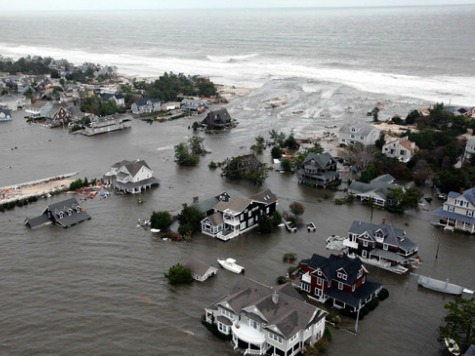A World Health Organisation report predicting the scale of deaths from global warming in decades to come has exaggerated the threat ten-fold, according to a former US government adviser on climate change.
The WHO’s report predicts a quarter of a million deaths per year between 2030 and 2050, a figure that Dr Goklany slammed as “preposterous”, because the model didn’t account for people’s ability to adapt.
The WHO’s study was released in the run up to the UN Summit on climate change in September. Amongst its predictions were claims that 95,000 more people would die each year from malnutrition, 60,000 from malaria, 48,000 from diarrhoea and 38,000 elderly who would die from heat exposure.
However, the briefing sheet put out with the study does not explain the assumptions made when creating the predictions. Rather, that information is buried within a table in the full report. Under the column heading “potential options not included in the model” is the revelation that the diarrhoea prediction does not include the possibility of “improved water, sanitation and hygiene”; that coastal flooding deaths do not include “population relocation”, and that deaths by exposure to heat aren’t avoided through “improved heat health protection measures; early warning systems”.
According to Dr Indur Goklany, who was a member of the delegation that set up the Intergovernmental Panel on Climate Change (IPCC) and helped developed its first assessment report, the assumptions render the report meaningless.
In a report designed to rebut the claims, titled Unhealthy Exaggeration: the WHO Report on Climate Change and published on the website of the Global Warming Policy Foundation, Dr Goklany writes: “This study is fundamentally flawed.
“It ignores the fact that people and societies are not potted plants; that they will actually take steps to reduce, if not nullify, real or perceived threats to their life, limb and well-being. Thus, if the seas rise around them, heatwaves become more prevalent, or malaria, diarrhoeal disease and hunger spread, they will undertake adaptation measures to protect themselves and reduce, if not eliminate, the adverse consequences.
“The WHO study assumes, explicitly or implicitly, that in the future the most vulnerable populations – low income countries in Africa, Europe, southeast Asia and the western Pacific – will not similarly avail themselves of technology or take any commonsense steps to protect themselves. This is despite many suitable measures already existing.”
Bob Ward, policy director at the Grantham Research Institute on Climate Change at London School of Economics, has said that, on the contrary, it was Dr Goklany who is at fault, by over-estimating the ability of the world’s poorest people to adapt. He told the Times “The study made plausible assumptions about future advances in economic development and found that they are not sufficient to prevent significant increases in risks to human health from climate change over the next few decades.”
Nonetheless, the question over adaptation is not the only criticism Dr Goklany levels at the report. Also problematic is the WHO’s exaggeration on the rate of global warming – they predict a temperature increase of 0.15˚C per decade, whereas empirical evidence from the MET office shows current warming of 0.04˚C per decade.
And the WHO report assumes that rising CO2 levels will have no impact on crop yield, again flying in the face of empirical evidence.
“Because of its wilful exaggerations,” Dr Goklany concludes, “the WHO study risks scaring people into taking ill-considered costly actions to limit greenhouse gases rather than focusing on higher priority global health issues such as hunger, malaria and diarrhoeal diseases, which can be addressed at a fraction of the cost”.

COMMENTS
Please let us know if you're having issues with commenting.